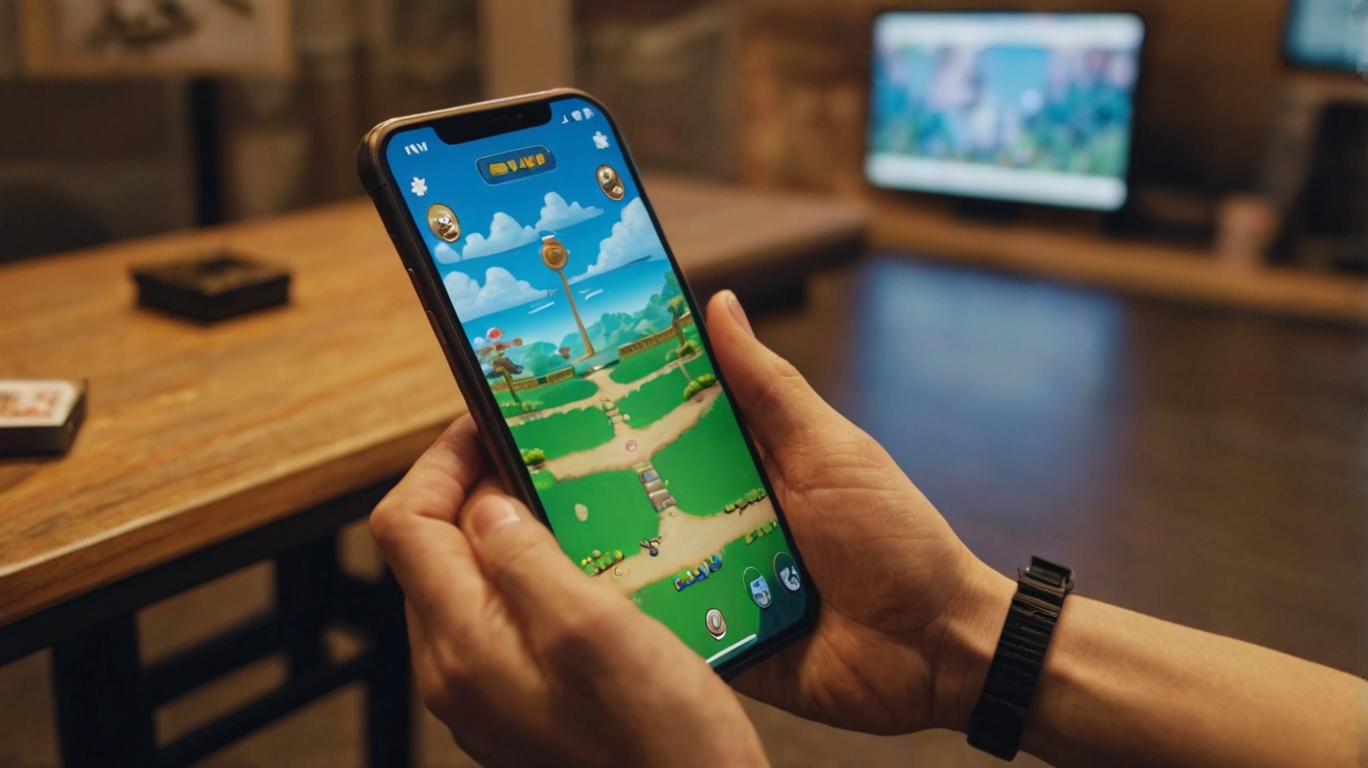
Mobile game development is evolving rapidly due to emerging technologies, changing player expectations, and increased market competition. As 2024 draws to a close, it’s time for developers to review the key lessons learned over the year to better prepare for the future of mobile gaming.
1. Player-centric design is non-negotiable
Lesson: It is more crucial than ever to comprehend player behavior, preferences, and pain points.
- Why this matters: Players expect engaging and personalized experiences. Games that fail to do this often suffer from poor retention.
- Key takeaway: Use in-game analytics, beta releases, and alpha testing to gather player input early on. Games like Stumble Guys and T3 Arena have thrived by carefully monitoring player data to refine mechanics and introduce features that players want.
2. The bar for graphics and performance has been raised
Lesson: Even on mid-range smartphones, gamers anticipate fluid performance and console-like graphics.
- Why this matters: High-quality graphics are no longer exclusive to AAA titles. Indie developers are also raising the bar.
- Key takeaway: Use optimized game engines like Unity or Unreal Engine and advanced techniques like texture compression. Additionally, make sure all devices are thoroughly tested for performance.
3. Hybrid monetization models work best
Lesson: Finding the right balance between free-to-play mechanics and monetization is critical.
- Why this matters: Over-reliance on ads or microtransactions risks alienating players, but games need to remain profitable.
- Key takeaway: In-app purchases (IAP), prizes, and subscriptions have all been successfully combined with advertising in hybrid models. For example, to provide free rewards while remaining player-friendly, Clash Royale deftly blends IAP with additional advertising.
4. Cross-platform play drives engagement
Lesson: Players are increasingly choosing games that allow them to move between devices.
- Why it matters: Cross-platform functionality improves user retention by allowing for play on mobile, PC, and consoles.
- Key takeaway: Use cloud gaming solutions or sync player progress across platforms using backend services like Firebase or PlayFab. Call of Duty: Mobile and Genshin Impact are examples of games with cross-platform support.
5. AI tools are changing efficiency
Lesson: Artificial intelligence (AI) has revolutionized many aspects of game development.
- Why it matters: AI-powered tools save time and reduce costs, allowing developers to focus on creativity.
- Key takeaway: Use AI for tasks like procedural content creation, play testing, and ad targeting optimization. Tools like ChatGPT for creating dialogues or Unity ML-Agents for training NPC behavior are becoming standard.
6. Sustainability in development is becoming critical
Lesson: Both players and developers are embracing green practices.
- Why it matters: Sustainability aligns with growing global awareness and builds brand loyalty.
- Key takeaway: To draw in players who care about the environment, reduce server power usage, employ effective coding techniques, and highlight environmental initiatives.
7. Community management drives longevity
Lesson: Games with active, engaged communities thrive longer.
- Why it matters: Community engagement drives loyalty and word-of-mouth marketing.
- Key takeaway: Make an investment in community management, plan in-game events, and create spaces for users to interact, such as forums or Discord servers. Strong communities may sustain popularity, as demonstrated by games such as Among Us.
8. Regular updates keep players engaged
Lesson: Frequent content updates and seasonal events are essential to maintaining player engagement.
- Why this is important: A lack of themed events and updates can make even loyal players lose interest.
- Key takeaway: Put operational plans into place to deliver new levels, limited-time events, and upgrades on a regular basis. Year-round player retention is a skill that games like PUBG Mobile have perfected.
9. Data privacy and compliance are paramount
Lesson: Respecting player data and adhering to privacy laws has become extremely important.
- Why this is important: Failure to comply can result in heavy fines and loss of player trust.
- Key takeaway: Stay up to date with regulations like GDPR, CCPA, and new laws. Create a transparent privacy policy and give players control over their data.
10. Inclusivity and Accessibility Are a Must
Lesson: Accessible and inclusive games resonate with a wider audience.
- Why it matters: Ignoring accessibility results in missed opportunities for good recognition and alienation from potential players.
- Key takeaway: Include functions like text-to-speech, colorblind modes, and adjustable settings. Horizon Chase 2 was commended for its well-considered accessibility features.
Conclusion
2024 has been a year of learning and growth for mobile game developers. These lessons set the stage for future developments, guaranteeing that mobile games will keep pushing the envelope and creating unforgettable experiences.




